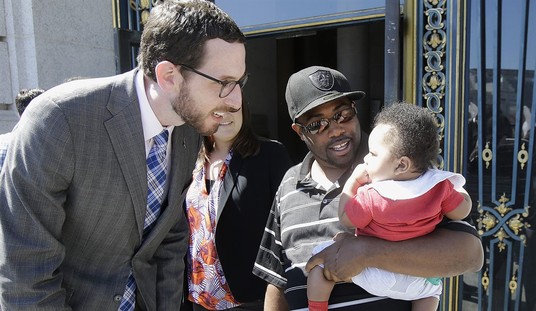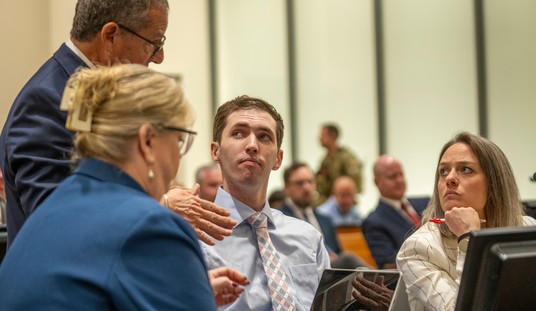Yesterday I wrote about the ongoing argument between NY Times tech reporter Taylor Lorenz (and her many supporters in the media including the NY Times), and Tucker Carlson, Glenn Greenwald and others who have criticized Lorenz for painting herself as a victim. Yesterday Greenwald wrote, “if you criticize the ways Lorenz uses her very influential media perch — including by pointing out that she probably should stop fabricating accusations against people and monitoring the private acts of non-public people — then you are guilty of harassing a “young woman” and inflicting emotional pain and violence on her.”
The debate hasn’t calmed down since yesterday. If anything it seems to be escalating. I’m not sure where to begin with this one so let’s just dive in with Tucker Carlson’s response to the NY Times statement in support of Taylor Lorenz.
Tucker Carlson responds to the New York Times statement accusing him of harassment for his segment criticizing Taylor Lorenz:
"Journalists make their living trying to destroy your life but if you say a single word about it, you're a criminal, a moral monster." pic.twitter.com/gUWqftCUp1
— Daily Caller (@DailyCaller) March 11, 2021
Here’s Lorenz’ response on Twitter to Tucker:
This is disgusting https://t.co/ERXscjrskK
— Taylor Lorenz (@TaylorLorenz) March 11, 2021
Lorenz also got support from reporter Wesley Lowery who called the situation “dangerous.”
https://twitter.com/WesleyLowery/status/1369858099348176896
Also last night Ryan Broderick, who was fired by Buzzfeed last summer after an investigation found him guilty of plagiarism, wrote a piece blaming the harassment of Lorenz on Glenn Greenwald. He also lumped in other popular writers on Substack as part of a growing problem.
Full disclosure: I consider Taylor a friend. I’ve known her for close to a decade and I am extremely familiar with how awful her mentions are. Even if I didn’t know Taylor, though, this is an interesting story for Substack as a platform.
Greenwald is part of a cadre of writers who position themselves as neither left or right-wing, instead focusing on culture war Twitter drama about being “canceled” and trans people in bathrooms and woke college students to make the actually very standard and traditional right-wing status quo that they’re defending sound slightly less tedious. Other writers in this network are people like former New York Times columnist Bari Weiss, Andrew Sullivan, Jesse Singal, and, I’d argue, Slate Star Codex writer Scott Alexander Siskind, as well. There are more. They are becoming more closely connected to the “dinner party TERFs” in the UK and Ireland. Almost all of them use Substack as their home base…
I read through Greenwald’s original Substack piece on Taylor (it wasn’t easy lol). And it was a vicious screed, but he doesn’t doxx her. But online harassment is a constantly evolving process of boundary testing. Campaigns become better and more organized and every community guideline that can be stress-tested will be. Right now most of the abuse being carried out by this group is confined to Twitter, but it stands to reason that it will eventually spill over to Substack. And dealing with people like Greenwald is going to be much harder to moderate than your average troll.
Hopefully you see where this is going. Ryan Broderick is wondering when and how Substack will clamp down on its most popular authors for having bad opinions and upsetting his friend Taylor Lorenz. Today, Greenwald wrote a lengthy response to this which opens by pointing to this prescient tweet by Stephen Miller:
It’s only a matter of time before the media tech hall monitors turn their attention to substack. https://t.co/I5thHFFK4k
— Stephen L. Miller (@redsteeze) November 16, 2020
Greenwald and Miller have little in common politically, but on this point they agree.
In case Broderick’s article was not explicit enough in his demand that Substack start censoring me and others, he took to Twitter to promote his article, where he made that even clearer. He described his article this way: “I wrote about the attacks against @TaylorLorenz and the growing community of right-wing culture warriors and TERFs that are using Substack to network and organize.”
I wrote about the attacks against @TaylorLorenz and the growing community of right-wing culture warriors and TERFs that are using Substack to network and organize.https://t.co/zxmncxTYA2 pic.twitter.com/MiLWMfXieU
— Ryan Broderick (@broderick) March 10, 2021
[…]
I really need someone to explain this to me: why is it permissible for Ryan Broderick to write articles attacking me and maligning my work, and for New York Times front-page reporter Taylor Lorenz to use her large Twitter platform and recruit all her media friends to attack me as well (or Taibbi, Weiss, Singal, Sullivan, etc.), but we are not allowed to write critiques of their work because doing so constitutes dangerous harassment that must be silenced?
Do you see how these online journalists have been taught to think about themselves and the world? Do you see the bottomless sense of entitlement and self-regard and fragility that defines who they are and how they behave? They specialize in trying to ruin people’s reputations and wreck their lives — not just other journalists but private citizens — but the minute someone objects to their journalism or what they say or do, they summon a team of teachers, psychologists, therapy dogs, digital police officers and tech executives to demand that their critics be silenced and their anguish be treated. They really do believe that the world should be organized so as to authorize them to attack whoever they want, while banning anyone who criticizes them when they do it.
There’s a lot more to the piece, including Greenwald’s reaction to the claim that he’s suddenly a right-winger. Ultimately, he writes that on this issue the right vs. left divide isn’t very helpful. “The real division here is between those who believe in a free internet, free discourse, free thought, and those who do not — between those who want corporate journalistic elites to control what people can say and think and those who do not.”
If you’d have told me 10 years ago that I’d be quoting Glenn Greenwald at length and agreeing with him, I’d have laughed in your face. But we really have come to a point where left and right matters less than being for or against the freedom to disagree with whatever the woke left or the left-leaning conventional wisdom has decreed to be the correct take on a given topic.
Finally, Megan McArdle, wrote a thread on Twitter today pointing out that there’s a big difference between the kind of criticism handed out by Glenn Greenwald, harsh as it may be, and the sort of online mob behavior Lorenz is complaining about. Conflating the two as a way to push for silencing critics is absurd:
Obviously, don't harass people! Mobbing people online is horrible and I oppose it, as I'm sure Messrs Taibbi and Greenwald also do. But no reputable journalist accepts the idea that they shouldn't criticize someone because some jerk might read the criticism and harass the target
— Megan McArdle (@asymmetricinfo) March 11, 2021
But if you are an adult professional in media or academia, it is inappropriate to complain that folks are criticizing your public, professional remarks in their newsletter, or to equate that criticism to online abuse. Robust, even pungent criticism is part of the job.
— Megan McArdle (@asymmetricinfo) March 11, 2021
All of which is to say: I've been on the receiving end of broadsides from Greenwald, Taibbi, Yglesias, and virtually everyone else now being named in the rapidly emerging "Cancel Substack" genre.
I've also suffered online abuse.
There's a big difference between those two things
— Megan McArdle (@asymmetricinfo) March 11, 2021
I agree with this completely. Online abuse is real and it’s not fun to experience. It should go without saying that no one should be getting death threats because they offered an opinion. But Lorenz and her defenders are taking this to another level by claiming that’s the entire point of criticism from Tucker Carlson and Glenn Greenwald. That’s not true or fair or remotely reasonable. It really does seem like a demand that, for her own safety, Lorenz should not be criticized by anyone with a large platform. Sorry, but that’s just not an option we need to take seriously.
To be really clear, I don’t want to see harassment of women online and so I don’t harass them or anyone else. But I’m still going to criticize Taylor Lorenz, Michelle Goldberg, Nikole Hannah-Jones or any of the other women working at the NY Times, all of whom have vastly more power and influence than I do. My criticisms are not part of a generic right-wing attack, nor are they a call for harassment. It’s my own opinion that these authors are occasionally very wrong.









Join the conversation as a VIP Member